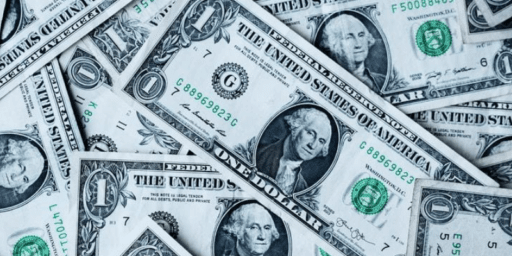Net Worth Update March 2013 (+2.19%)
Welcome to the Million Dollar Journey March 2013 Net Worth Update. For those of you new to Million Dollar Journey, a monthly net worth update is typically posted near the end of the month (or beginning of the next) to track the progress of my journey to one million in net worth, hopefully by the time I’m 35 years old (end of 2014). If you would like to follow my journey, you can get my updates sent directly to your email or you can sign up for the Money Tips Newsletter.
Lets start with the stock market which pulled back a bit for the TSX but the S&P500 appears to be unstoppable. Although the TSX corrected a bit in March, after dividends (via XIU.TO), it pretty much broke even. The S&P500 has performed very well for Q1 2013, closing off the quarter with a 3.5% gain in March.
As I mentioned in a recent post, most of my RRSP holdings are large US dividend stocks which has worked out well so far this year. You may notice a large gain in the balance sheet below, however the 7.12% gain is mostly doing a shift in accounting. Recently, my wife changed positions which has resulted in moving from a defined benefit pension to a defined contribution plan (DCP). The total balance of the DCP has been added to the RRSP line item.
On another note, just a quick reminder that the income tax deadline for 2012 tax year is April 30, 2013. I will be having a tax software giveaway later this week, so stay tuned!
On to the numbers:
Assets: $846,100 (+1.96%)
- Cash: $4,500 (+0.00%)
- Savings: $20,000 (+0.00%)
- Registered/Retirement Investment Accounts (RRSP): $148,900(+7.12%)
- Tax Free Savings Accounts (TFSA): $52,300 (+0.19%)
- Defined Benefit Pension: $41,900 (+0.72%)
- Non-Registered Investment Accounts: $150,000 (+3.45%)
- Smith Manoeuvre Investment Account: $119,000 (+0.85%)
- Principal Residence: $309,500 (+0.00%) (purchase price adjusted for inflation annually)
Liabilities: $100,100 (+0.30%)
- Principal Residence Mortgage (readvanceable): $0 (0.00%) (Paid off in 2010!)
- Investment LOC balance: $100,100 (+0.30%)
Total Net Worth: ~$746,000 (+2.19%)
- Started 2013 with Net Worth: $690,400
- Year to Date Gain/Loss: +8.05%
In my last update, readers suggested to chart my net worth progress over time. Below are the net worth values since Dec 2006 with data points taken semi annually.
- December 2006: $198,500
- June 2007: $254,695
- December 2007: $279,300
- June 2008: $310,483
- December 2008: $309,950 (rough second half)
- June 2009: $355,850
- December 2009: $399,600
- June 2010: $456,910
- December 2010: $505,800
- June 2011: $558,713
- December 2011: $585,228
- June 2012: $631,400
- December 2012: $690,400
Some quick notes and explanations to net worth questions I get often:
The Cash
The $4,500 cash are held in chequing accounts to meet the minimum balance so that we pay no fees (accounting for regular bill payments – ie. our credit card bill). Yes, we do hold no fee accounts also, but I find value in having an account with a full service bank as the relationship with a banker has proven useful.
Savings
Our savings accounts are held with PC Financial and ING Direct. We usually hold a fair bit of cash in case “something” comes up. The “something” can be anything that requires cash such as an investment opportunity that requires quick cash or maybe an emergency car/home repair. We also need cash to cover any future tax liabilities.
Where Does the Savings Come From?
We don’t live a lavish lifestyle (how we save money) and do not carry any bad debt. The only debt we have is an investment loan (which pays for itself), so we end up pocketing a majority of our earnings. Our earnings come from salaries, private business income (via dividends to shareholders), and eligible dividends from publicly traded companies.
Real Estate
Our real estate holdings consist of a primary residence and REITs plus a rental property. The value of the principal residence remains valued at the purchase price (+inflation) despite significant appreciation in the local real estate market.
Pension
The pension amount listed above is the value of both of our defined benefit pension plans. I basically take the semi annual statement and add the contribution amounts (not including employer matching) on a monthly basis. The commuted value of the pensions are not included in the statements as they are difficult to estimate.
Updated 2013 – My wife has recently changed her position which has resulted in switching to a defined contribution plan. This amount will be added to the RRSP totals going forward.
Stock Broker Accounts
Another common question is which discount broker do I use? We actually have accounts with multiple institutions. I’m hoping to reduce the number of accounts that we hold in the near future. Here is a review of some of the more popular online stock brokers.










Hi FT,
Are the holdings of your TFSA posted somewhere? If not are you able to share? With max contribution being $25,500.00 since inception having built that to $52,300 in only 4.25 years needless to say I would be interested to know what you’re holding. :)
Thanks :D
Hey FT,
Kevin’s question about rate of return is interesting. I realize that you are posting a % change in net worth for each category, but I think many readers may think that is the rate of growth. Especially for your investments, this could be a major factor.
You are clearly a prolific saver and a significant portion of the growth of your net worth is from savings each year. You are probably adding $30,000 or more to your investments each year, which tends to make them look like they only gain in value. (Or have you found stocks that only go up and never go down – even in 2008? :) )
Have you considered showing the rate of return for each asset separately from the change in total value? Then readers would be able to see how much is the asset gain or loss separately from how much you added. This would also, for example, clarify your RRSP this month where your wife’s pension plan was added.
Ed
Hey FT,
I think the reason there has been debate about what your should or should not include is because of different interpretations of your goal. Your goal is a net worth goal, not a retirement goal – right?
For an industry standard, “net worth” is an accounting term, which essentially means the current value of all assets less the current value of all liabilities. That would include your principal residence and also depreciating assets.
The reason depreciating assets are usually ignored, even though they technically should be included, is that the value is usually small and may not be easy to verify the value. Including them gives the appearance of trying to pad the figures. However, companies all include their depreciating assets in their net worth.
Financial planners and mortgage companies will also include your principal residence in your net worth, but normally don’t bother with depreciating assets. The only exception would be high value assets that you might actually sell.
The values used should be conservative estimations of current market value and should best be independently determined. Many people exaggerate the value of their home, so you should have an independent way to arrive at it. Your inflation adjustment would be conservative, but could be wrong in a real estate crash. A real estate agent verification would be independent, but they tend to exaggerate the values. Property tax assessments are usually supposed to be market value from a year or 2 ago, so that is a pretty good valuation, although usually a bit low. If you have a bank appraise it periodically, perhaps while increasing your Smith Manoeuvre credit limit, that would be a good value.
Your $1 million net worth goal is not a retirement goal. You have not said (I believe) that is your retirement goal or that it will be enough.
Retirement goals are completely different. You would only then include any assets that would contribute income to your retirement. You would then usually exclude your principal residence, unless you plan to sell it and invest the money. You would also exclude any depreciating assets.
For a retirement goal, you would also exclude investments or cash that will not be used for retirement income, such as cash on hand and an RESP. You would only include the cash if you intend to invest it for your retirement. An RESP is for a different goal, so it would not be part of the retirement goal. Even your TFSA, if any portion was intended for a purpose other than retirement, you would exclude it.
I think what you are doing here for net worth is fine, FT.
Ed
True.
There’s no difference between your personal residence and your personal transportation.
I wonder what readers would suggest if you had a garage full of collector cars instead of the common utility?
Is there an industry standard to which personal net worth is calculated?
Why no depreciating “assets” on the list, such as vehicles?
@SST, I did include vehicles in the early days but removed them due to readers suggesting that I remove them. But in reality, if it can be sold for cash, it is an asset.
I really think the game changer at the end of the year will be valuing the principle residence at market value.
As someone from St. John’s, I know full well that your house is likely worth well of $300,000 at this point!
The thing is, if you update it for market value on Dec.31, 2013 (by getting a real estate agent to appraise your house), I think this will put you over the top.
Hope you do this and your million dollar journey will be complete!
@Daniel, thanks for your vote of confidence! The house is probably worth around $400k, but the tax assessment has it at $360k. An adjustment would certainly bring me closer to my goal. As others have requested that I add my future tax liability, I may do that and adjust the real estate value to the tax assessed value.
It looks like the graph hasn’t been updated with the year end 2012 data point.
I noticed on your networth graph that you have pretty smooth sailing through the financial crisis. Did something offset the big drop in stocks during the latter half of 2008 ?
Hi there,
I have been tracking you blog for a few years now and your Net Worth Statement is almost exactly in line with my own situation.
There is only one comment I would like to make. This comment comes about because of a book I read recently, you may have heard of it, The Wealthy Barber Returns.
In it, David Chilton mentions that most of us, in our net worth statements, fail to account for the taxes owing on our RRSP and pensions. I have since adjusted my own NWS to reflect this taxes owing. I have allowed 35% for this future expense. It hit me hard that this is the reality of it but I feel the inclusion makes for a more accurate NWS.
I do not see this in your NWS. What are your thoughts?
Thanks and keep up the good work
@Interested Follower, yes we have 2 kids. I do not include the RESP accounts in the net worth updates, but probably should as they would be considered part of my estate upon death. We are able to have high savings because of decent cash flow and no debt servicing costs.